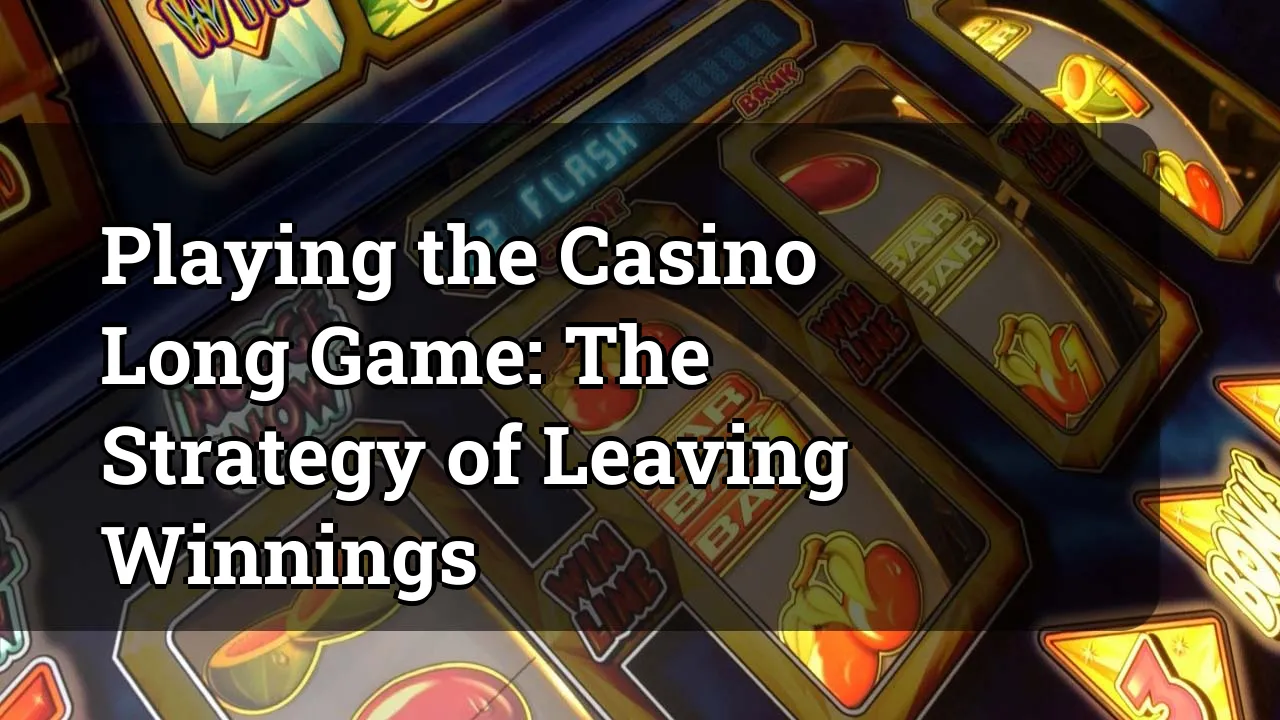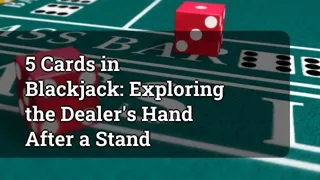Playing the Casino Long Game: The Strategy of Leaving Winnings

When it comes to gambling at a casino, the goal for most players is to walk away with more money than they started with. However, there is a strategy that some experienced players employ called "leaving winnings" or "leaving a winner." This strategy involves resisting the urge to cash out immediately when you're ahead and instead continuing to play with your winnings. In this article, we will explore the casino strategy of leaving your winnings and why it can be a smart move for some players.
The Psychology Behind Leaving Winnings
To understand the strategy of leaving winnings, it's important to consider the psychology behind it. Winning at a casino can be an exhilarating experience, and the temptation to cash out immediately and walk away with your profits can be strong. However, studies have shown that the anticipation and excitement of gambling can be just as enjoyable as the actual winning itself.
By leaving your winnings and continuing to play, you can prolong the enjoyment and adrenaline rush of the gambling experience. It's a way to extend the thrill and potentially increase your winnings even further. It's important to note that this strategy is not for everyone and should only be employed by those who have a good understanding of their limits and can afford to continue playing.
Maximizing Potential Winnings
Another reason why some players choose to leave their winnings is to maximize their potential earnings. When you're on a winning streak, it's natural to feel confident and believe that luck is on your side. By continuing to play with your winnings, you have the opportunity to capitalize on that streak and potentially win even more money.
Of course, this strategy also comes with risks. There is always the chance that your luck will turn and you may end up losing your initial winnings. It's important to set a limit for yourself and know when to walk away. Leaving your winnings can be a calculated risk, but it's crucial to exercise self-control and not get carried away by the excitement of the game.
Building a Casino Bankroll
Leaving your winnings can also be a part of a long-term strategy to build a casino bankroll. By reinvesting your winnings back into the game, you can gradually increase the amount of money you have to play with. This can be particularly beneficial for players who frequent the casino often and want to have a larger bankroll to work with.
However, it's important to be mindful of responsible gambling practices and not let the desire to build a bankroll cloud your judgment. Set limits for yourself and only reinvest a portion of your winnings if you choose to continue playing. Remember, gambling should be seen as a form of entertainment, not a way to make a living.
Conclusion
The strategy of leaving winnings instead of cashing out when you're ahead is a calculated approach that can extend the enjoyment of the gambling experience, maximize potential winnings, and build a casino bankroll. However, it's crucial to exercise self-control and set limits for yourself to avoid losing your initial winnings. Remember, gambling should always be done responsibly and within your means.











